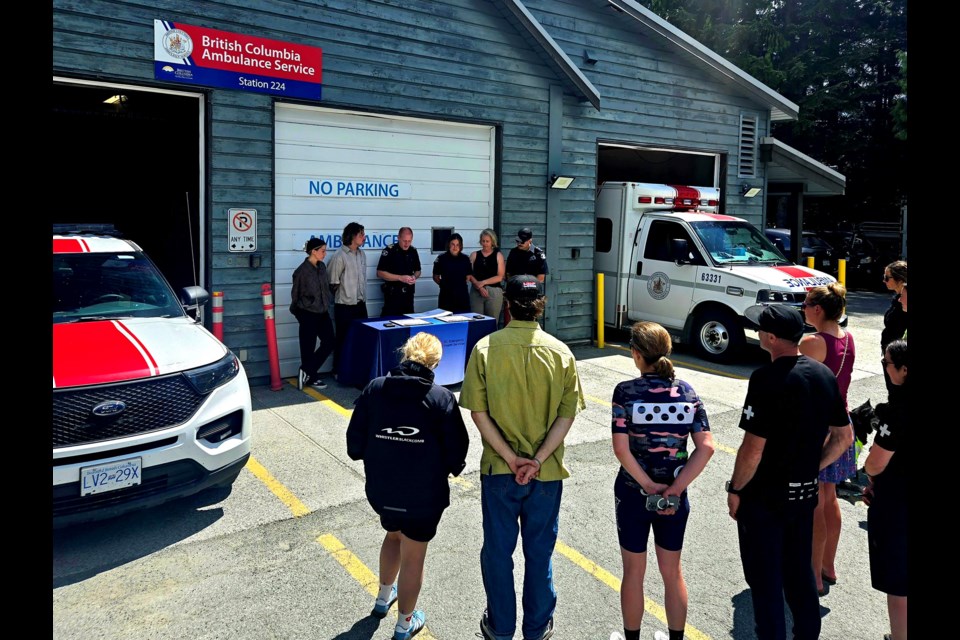Unless you’re a first responder, it’s not every day your actions can help save someone’s life.
But last March at Whistler Blackcomb, five bystanders did just that when a skier went into sudden cardiac arrest at the base of the Creekside Gondola. On July 6, BC Emergency Health Services (BCEHS) awarded them Vital Link Awards in recognition of their efforts.
Abby Torrijos and Hayden Seers, two of the first to respond, attended the ceremony, where BCEHS primary care paramedic Bobby Currie presented the honours. According to a BCEHS spokesperson, Vital Link Awards “honour the skilful actions of one or more bystanders at a cardiac arrest emergency.”
Pique spoke with Torrijos, who was working as a lift operator and was the first to respond to the incident, about what happened that day—and the impact it had on her.
“This man came down from the gondola with his son, and he came to me, and he was complaining of chest pain. I went and got him a chair while his son went to the shops to get aspirin. In the time he was sitting in the chair, he'd, I think, gone into cardiac arrest,” she explained. “I assume that's what was happening, because his eyes rolled back and he started not being able to breathe, and he kind of [lost consciousness]. And then I was like, screaming, yelling out for a doctor, also calling patrol.”
Ski patrol connected Torrijos with a 911 dispatcher. At the same time, a woman with a medical background emerged from the gondola and began directing bystanders to lay the man on the ground and start CPR.
One of Torrijos’ friends, Seers—a registered nurse from Australia—arrived on the scene and took over chest compressions.
As a crowd gathered, Torrijos helped disperse onlookers and cleared gates at the Creekside Gondola so paramedics could access the scene.
Another bystander brought a defibrillator, arriving just as ski patrol showed up with another. The device delivered an electric shock to help restore the man’s heartbeat.
“Then the ambulance came and took him away,” Torrijos said.
Although she had taken first-aid training five years earlier, Torrijos said she had never had to use it until that day. She described the experience as “quite a shock,” given her limited experience with emergencies.
“Hayden's the only person out of us that has experience in that area. I was very grateful that he was there at the time,” she said.
Torrijos has since moved on from Whistler Blackcomb to travel across Canada, but she said she relied on others involved in the rescue in the days following the incident.
“We're all very grateful that we’re close. We could lean on one another after the incident, because it was quite a shock.”
Some time later, she received an email letting her know she’d won the Vital Link Award. While surprised, she said she appreciated the recognition.
The experience also gave her new insight into how bystanders can help during emergencies.
“Any help is help. And don't be afraid to like, yell out for help to people around you. There might be someone who knows what they're doing or have more experience than you do," she said. "But yeah, just kind of keep levelheaded. I'm just kind of grateful for the whole situation, like all of us kind of fell into place and did our role at the time. But yeah, my advice is even just doing the first-aid course, like I've done one five years ago. But even doing that was helpful at the time.”




